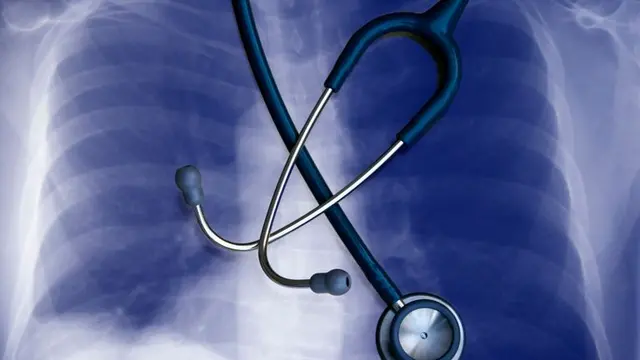A ground-breaking blood test could cut the number of people who die from lung cancer each year.
Lung cancer is the third most common cancer but it has a very high mortality rate. Less than 9% of patients survive more than five year after diagnosis - often because it is spotted too late.
A trial of 12,209 high-risk patients in Scotland found that those who took the blood test were diagnosed at an earlier stage than those who received standard care.
Oncimmune Holdings, the global company that designed the test, said it works by detecting autoantibodies made by the body's immune system as a natural defence against cancer cells.
In a statement, it said: "Lung cancer was chosen as the first target of the technology because it is the world's leading cause of cancer-related death and is often detected at an advanced stage with approximately 85% of patients in the UK undiagnosed until the disease has spread to other parts of the body."
The trial was reported earlier this year but the results are being presented at a conference in Barcelona.
Oncimmune said that, of those who had the EarlyCDT Lung test and developed lung cancer within two years, 41.1% were diagnosed at an early stage.
This compares an early diagnosis rate of 26.8% among the group treated normally.
The trial also showed a lower rate of premature death among those who had the test compared with the control group.
They added: "The next step is to move to a larger population-based evaluation in up to 200,000 patients to assess the implications of diagnosis with EarlyCDT Lung on survival and mortality in a real-world setting."
Professor Frank Sullivan, professor of primary care medicine at the University of St Andrews, the chief investigator for the trial, said: "These landmark findings are likely to have globally significant implications for the early detection of lung cancer by showing how a simple blood test, followed by CT scans, is able to increase the number of patients diagnosed at an earlier stage of the disease, when surgery is still possible and prospects for survival much higher."
Sara Hiom, Cancer Research UK's director of early diagnosis and health professional engagement, told Sky News: "It would need to be properly validated in a larger number of people but the early findings are very positive.
"This is very exciting, and one of a range of blood tests that are being developed to detect cancers earlier which is when they can be found at an early stage and treated more effectively."
She said that the current way to diagnose lung cancer was usually with a CT scanner "but those do not come cheap and we don't have enough scanners or radiologists able to read these scans and interpret the results".
(CGTN)
 简体中文
简体中文

